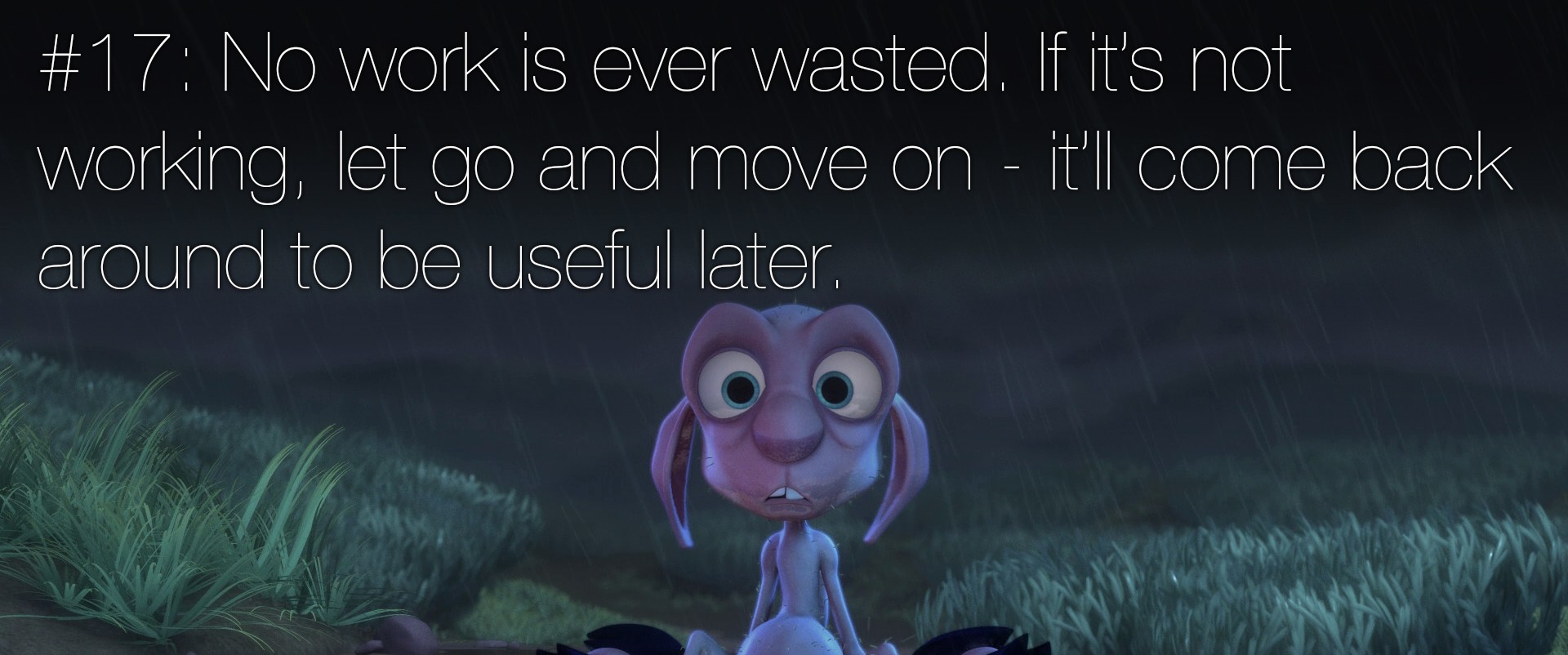A couple of years ago, then Pixar storyboard artist Emily Coats tweeted pieces of advice on making stories that she had picked up from working with Pixar, which were later compiled in several places on the internet, such as this io9 post. Later, Dino Ignacio created image macros of the individual rules which I am using in these posts.
Rule #17: “No work is ever wasted. If it’s not working, let go and move on – it’ll come back around to be useful later.”
This is the other payoff for writing things down so you can work on them. Aside from letting you fix things, it helps you remember your ideas. And then, even if you don’t manage to get that game going, you’ll still have the ideas in case you need them later on. A character you liked or a clever set piece that you created for one game that never got off the ground might find a home in another game with a little modification. Even if you have to reskin it dramatically to fit with a different genre or setting, sometimes there’s still a core of an idea that can speak in a different context.
Sometimes you spend a lot of time on something only to realize it doesn’t fit anywhere in the game you’re working on. Maybe it doesn’t really fit with the tone of the game, or muddies the water too much with regards to your themes. You don’t have to murder your darlings, just send them off to boarding school until you figure out what to do with them. Letting an idea rest and getting some distance might give you the mental space you need to see what isn’t working. Or else you’ll forget why you were so bound and determined to make it work in the first place and you’ll be able to let it go.
This is useful even within the same game. If the players aren’t going for a plot hook, don’t force it. Go to Plan B and let that plot they wouldn’t bite on rest for a while before you revisit it and decide what happened in the players’ absence. Did the situation deteriorate? Maybe higher stakes will get the players more interested. Did another group step in and address the problem? Now you’ve got a story about another group that can filter down to your players. You can turn that group into allies, rivals, villains, or just use their existence to give the players the sense that their party aren’t the only ones holding the world together.
If you’re in the middle of a story when a big new idea comes to you, or you’ve got a game to run and no group to run it with, it can be easy to think it’s not worth developing your ideas because you won’t get the chance to use them. But even if you can’t use it right away, taking notes and developing ideas gives you a stable of concepts that you can draw on in the future when a group falls in your lap and has no idea what they want. So don’t just throw it away.






